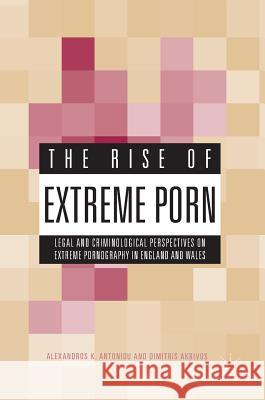The Rise of Extreme Porn: Legal and Criminological Perspectives on Extreme Pornography in England and Wales » książka
topmenu
The Rise of Extreme Porn: Legal and Criminological Perspectives on Extreme Pornography in England and Wales
ISBN-13: 9783319489704 / Angielski / Twarda / 2017 / 369 str.
The Rise of Extreme Porn: Legal and Criminological Perspectives on Extreme Pornography in England and Wales
ISBN-13: 9783319489704 / Angielski / Twarda / 2017 / 369 str.
cena 545,99 zł
(netto: 519,99 VAT: 5%)
Najniższa cena z 30 dni: 539,74 zł
(netto: 519,99 VAT: 5%)
Najniższa cena z 30 dni: 539,74 zł
Termin realizacji zamówienia:
ok. 20 dni roboczych.
ok. 20 dni roboczych.
Darmowa dostawa!
Kategorie:
Kategorie BISAC:
Wydawca:
Palgrave MacMillan
Język:
Angielski
ISBN-13:
9783319489704
Rok wydania:
2017
Wydanie:
2017
Ilość stron:
369
Waga:
0.60 kg
Wymiary:
21.01 x 14.81 x 2.24
Oprawa:
Twarda
Wolumenów:
01
Dodatkowe informacje:
Wydanie ilustrowane











